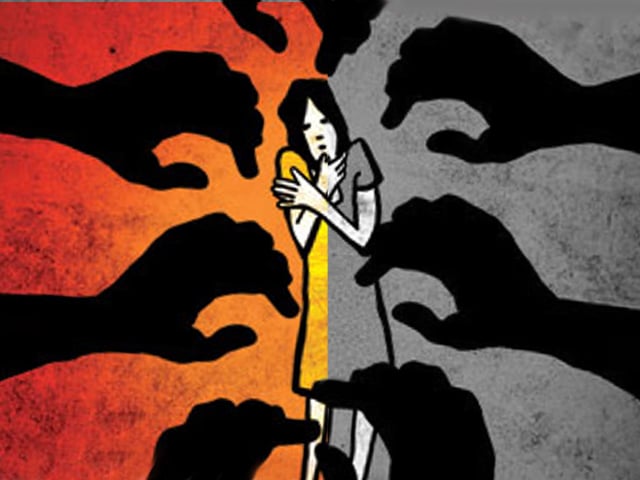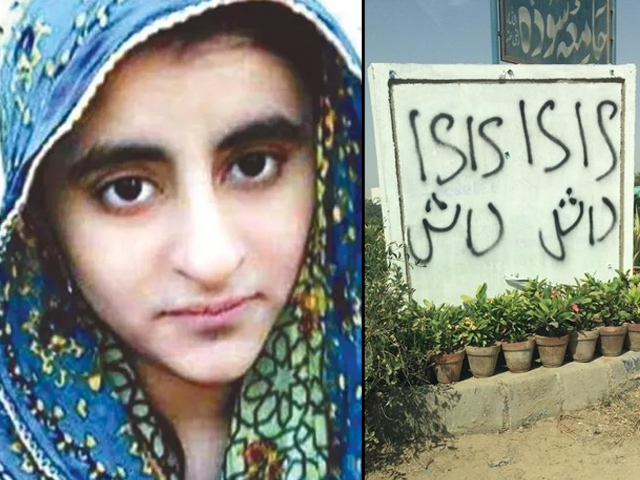
Shaista Zaid and the black days of the past
After a while, anytime I heard Shaista Zaid's voice, I saw General Ziaul Haq in my mind.
English newscaster Shaista Zaid retires after 43 years of service to the state broadcaster PTV, but did you know that for many years she was also the voice of the English speaking clock, and that to this day, you can hear her on PTCL announcing,
"Your telephone subscription does not support calling this number. Please dial 17 for more assistance?"
Her voice for me was the official English-speaking voice of Pakistan when I was growing up, during the years of Zia and state control over information; seeing her finally retire brings back memories of those difficult times. I can't help but think of all the state-authored lies stories that passed her lips over those dark years. Was she anything more than an official mouthpiece for a dictator?
In the late 1970s, when I returned to Pakistan, I could only speak English, although I understood Urdu, poorly. There was only one television channel: The state-owned Pakistan Television Network.
It ran on an abbreviated schedule: no programming until about three in the afternoon. Then the station would warm up with about an hour of Quran lessons and recitation. After 4:00pm, we were rewarded with one English cartoon: Looney Tunes, Tom and Jerry, Mickey Mouse. Back to the Urdu language programming: Dull serials, staid talk shows, a little music with say, children singing folk-songs in traditional dress.
At 7:00pm, the news in English. This is when Shaista Zaid would make her appearance, resplendent in her shalwar kameezes with a dupatta perched carefully over her bouffant, large expressive eyes, high cheekbones and full lips made up to camera-ready perfection. Her dulcet tones would fill the room and I'd hear snippets about what was happening in the world (carefully censored) and in Pakistan (written by the Ministry of Information, filled with state propaganda, and completely one-sided).
I was too little to know any better. I waited impatiently for seven-thirty, when the one English language television show would be aired: Little House on the Prairie, The Rockford Files, The Six Million Dollar Man, shows deemed harmless enough for Pakistani audiences, although every kiss was carefully edited out (they weren't that picky about skimpy clothing).
And General Zia. Oh, the footage of General Zia, saluting, reviewing parades, meeting foreign dignitaries, shaking hands with wounded soldiers. His disabled daughter, dressed in a military uniform of her own, never far from his side on stage, saluting her father like any good soldier. He filled the screen, he filled the country. He was larger than life, a figure somewhere halfway between Big Brother and a religious icon.
After a while, anytime I heard Shaista Zaid's voice, I saw the general in my mind. In fact, her voice became an instant soporific for me, and like Pavlov's dogs, I'd tune out on cue the minute I heard her speaking. Later, I'd realise how similar her voice and diction was to Benazir Bhutto (Zia's arch-rival and nemsis, ironically) - a highly educated, upper-class Pakistani accent that spoke of drawing rooms and servants, luxury cars and illicit whiskey.
So much was announced by Shaista Zaid, as someone said on Twitter yesterday. The sighting of Eid moons, updates on Kashmir and the war in Afghanistan.
In those days, two words were never mentioned on television: 'Bhutto' and 'India'. The news, sanitised, propagandised, carefully cut and edited to create a narrative of Pakistan as the greatest country in the Muslim world, if not the entire universe - supporting heroic Mujahideen, fighting unnameable enemies, forging and maintaining blood-brother friendships with China and Turkey. Women carefully embroidered out of this narrative, relegated to roles of homemaker, teacher, mother, wife, daughter - smiling, silent sidekicks to their menfolk, who were superior to them in every way.
It's true that Shaista Zaid continued to broadcast the news for decades after the end of Zia's reign. But for me, she'll always be associated with those strange, surreal days, the "black" days as the MRD named them. Picking up my telephone and dialing the wrong number sends me back thirty years, turns me into a child again, when I was young and innocent and Pakistan was the center of the world and General Zia was the Master of the Universe.
Read more by Bina here or follow her on Twitter @BinaShah




COMMENTS (50)
Comments are moderated and generally will be posted if they are on-topic and not abusive.
For more information, please see our Comments FAQ